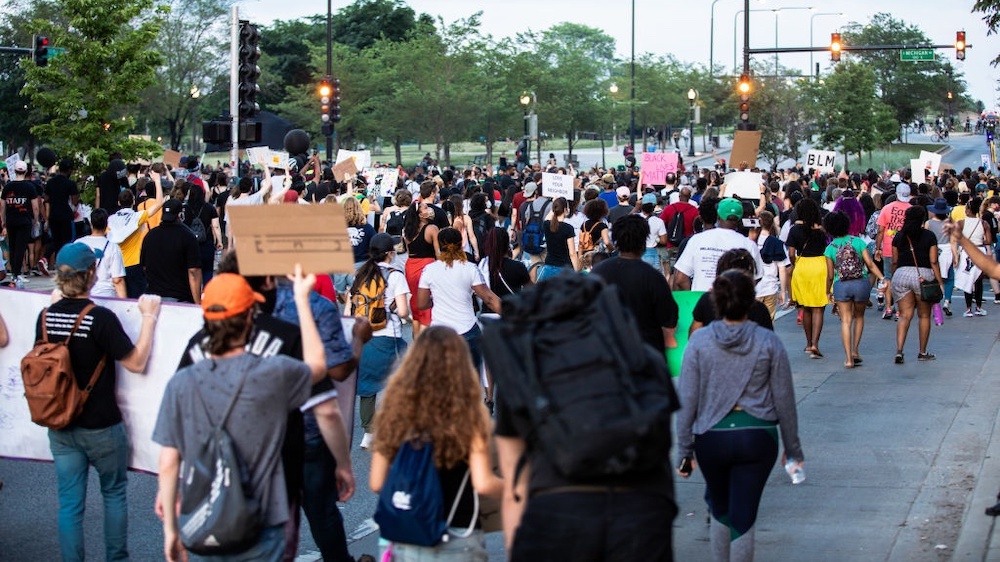If you’re interested in sharing your opinion on any cultural, political or personal topic, create an account here and check out our how-to post to learn more.
____
Young people possess incredible power to change the world. As uprisings have broken out across the country following the murder of George Floyd by a Minneapolis police officer, millions of people, including both of us, have participated in protests to demand an end to the systemic racism and state-sanctioned violence that have pervaded American life since before this country was founded.
We are not new to this fight. Following the killing of Michael Brown Jr. in 2014, the two of us pushed for change from different places: Bruce led protests in Ferguson, Missouri, while Brent worked to affect change within the Obama administration’s Department of Justice. What has struck us both about the current moment in particular though has been the huge, diverse coalition of passionate young Americans who are stepping up to lead — and hopefully, sustain — this movement.
Young people have been key leaders on issues-based movements dating all the way back to the 1800s. Even when policy-makers and leaders have found it more politically palatable to stick to the status quo or propose incremental, inadequate reforms, millennials and members of Generation Z have spoken out consistently on the need for dramatic action to prevent gun violence, fight against climate change and more.
But in this current moment, as millennials and members of Generation Z are standing at the forefront of the racial justice movement, it feels like something has shifted. Young Black people have been leading the racial justice movement for decades — but what has felt new in the past few weeks is that a much larger cohort of young white people and young non-Black people of color are joining their Black peers in being vocal about the need to dismantle systems rooted in white supremacy. This trend is also borne out in data — according to a recent Washington Post-Schar survey, 82% of people aged 18–29 support the protests and 77% of them see George Floyd’s killing as a sign of broader problems in police treatment of Black people.
Both online and offline, these younger generations have been more willing to have tough conversations about race and challenge friends and family members to rethink the role of racism in modern society. Through words and actions, young people are demanding justice for countless victims of police violence — including Breonna Taylor, who was killed in her bed in Louisville, Kentucky — and demonstrating that they refuse to turn a blind eye to systemic injustice any longer. From New York City to small rural towns, they have organized protests, marches and rallies to engage their communities and push their leaders and lawmakers to enact the types of substantive reforms that will be necessary to create real change.
As recently as a few months ago, cities were planning to maintain or increase funding for their police departments. Now, there is a broad call-to-action inspired by the demands of young people to reduce police departments’ budgets and invest in Black communities. Facing added pressure as a result of countless incidents of flagrant police brutality directed at protestors and bystanders, which have gone viral on social media and been covered on cable news, elected officials in cities across the country are finally listening. Mayor Eric Garcetti in Los Angeles was among the first to respond to the demands, and he has since been joined by elected officials in Minneapolis, New York and Washington, DC, among others.
Local school districts have also started to sever ties with local police departments, a policy shift that will help to end the criminalization of teenage misbehavior and the school-to-prison pipeline. And although it will take much more than any single election to solve the deeply embedded problems that this country faces, young people are also increasingly connecting their work on these critical issues with their right to vote — some organizers have even taken it upon themselves to register fellow protesters to vote while marching. Motivated by their activism during this time, some of these young people may even begin to think of running for office themselves, like Bruce did following the Ferguson protests of 2014.
Like many people, we believe that this moment in history has the potential to be more than just a moment. This moment might finally produce the national reckoning that could result in fundamental changes to institutions and power structures that political leaders have largely remained opposed to enacting. Millennials and Generation Z, the most diverse generations in American history, make up over one third of the adult population and represent the future of this country. We are demanding big solutions to big problems. It’s time for older generations to listen to us.
____
Brent J. Cohen is the executive director of Generation Progress, a national advocacy and education organization that promotes progressive solutions to the issues that matter to young people between the ages of 18 and 35. He was previously a political appointee and senior advisor at the Department of Justice during the Obama Administration.
Bruce Franks, Jr. is the #Fight4AFuture Senior Consultant at Generation Progress and a former Missouri State Representative. He is also the subject of the Oscar-nominated documentary, ‘St. Louis Superman’.

